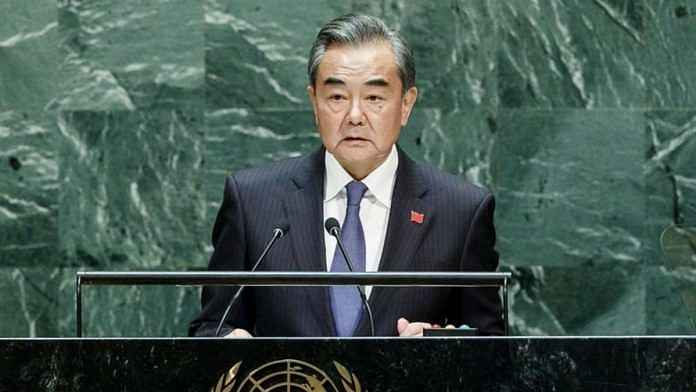New Delhi: China Wednesday reiterated that India is to be blamed for the Galwan Valley incident Monday night in which 20 Indian soldiers died, but maintained that both sides are in “close communication” to resolve their issues that have resulted in a stand-off for over a month.
The Chinese statement comes after India said Tuesday night that China wanted to “unilaterally change the status quo” in the Galwan River Valley. India also alleged that China did not respect the understanding reached on 6 June between senior commanders of both armies.
Chinese foreign minister Wang Yi was quoted as saying by Global Times: “The incident was very clear, as it happened on the Chinese side of the Line of Actual Control (LAC) and the responsibility did not rest with China.”
The incident was very clear, as it happened on the Chinese side of the Line of Actual Control (LAC) and the responsibility did not rest with #China, said Chinese FM on China-#India border conflict https://t.co/M53euCmHEw
— Global Times (@globaltimesnews) June 17, 2020
“China and India are in close communication on resolving relevant issues through both diplomatic and military channels,” Wang said.
The foreign minister’s comments are critical, because he is also the designated ‘special representative’ for India-China boundary talks. His counterpart on the Indian side is National Security Advisor Ajit Doval.
The last round of SR-level talks between Doval and Wang took place in December last year, following the informal summit in Mamallapuram between Prime Minister Narendra Modi and Chinese President Xi Jinping, where both decided that “differences will not be allowed to become disputes”.
The SR mechanism was institutionalised in 2003 after former prime minister Atal Bihari Vajpayee’s visit to China.
Also read: India shifts China diplomacy strategy to high gear after Galwan clash, military-level talks on
Russia-India-China trilateral dialogue postponed
Meanwhile, sources confirmed to ThePrint that the Russia-India-China (RIC) trilateral dialogue, which was to take place virtually on 22 June between External Affairs Minister S. Jaishankar, China’s Wang and Russian foreign minister Sergey Lavrov, has been postponed in the light of the Galwan Valley incident.
The sources said India has been reaching out to diplomats who are keen to understand the ground realities, ever since the border stand-off began last month.
“Clearly, these are concerning reports. We encourage India and China to engage in dialogue on issues relating to the border. Violence is in no one’s interest,” said a spokesperson for the British High Commission.
Earlier this month, Foreign Secretary Harsh Vardhan Shringla had briefed Russian Ambassador to India Nikolay R. Kudashev on the evolving situation in eastern Ladakh.
Prime Minister Narendra Modi had also discussed the “situation on the India-China border” over a 25-minute phone call with US President Donald Trump on 2 June.
Also read: China has an Achilles’ heel. India must take the battle there from LAC




A huge setback to sincere efforts that have been made over the last thirty years to put the memories of 1962 behind, attempt to build a more mutually beneficial relationship. As a lay person, one cannot judge the military utility of the sixty square kilometres of Indian territory that China has forcibly occupied since early May. The basic Indian demand that status quo ante be restored is a fair one. The loss of lives takes the relationship to a very dark place. It is now for the Chinese government to look to the next fifty years, see where India fits into its scheme of things, whether it wishes to open the door or slam it shut.
What is The Print’s stand on this issue? Are you China’s voice you termites?